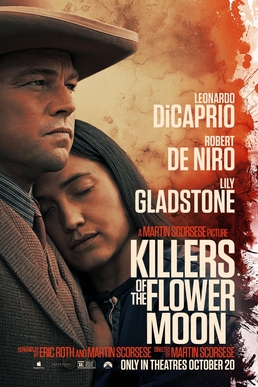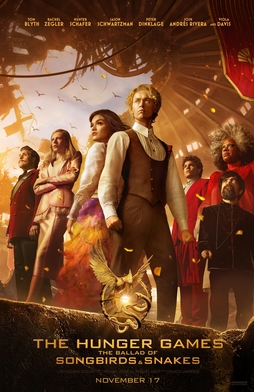Dr. Strangelove Or: How I learned to Stop Worrying about the Future and Love the Present.
Stanley Kubrik’s Dr. Strangelove or: How I Learned to Stop Worrying and Love the Bomb, is a bad movie. It is one of my favorite movies, but I will be the first to say that Dr. Strangelove can be slow, as well as a painful reminder of the advancements since made in special effects.
That being said, what I admire in this film is Kubrick’s ability to comment on nearly every single controversial idea at the time of its 1964 release, while simultaneously addressing problems we face now.
Kubrick reminds us that critical thinking and not focusing on what-if scenarios are vital skills in life. With the US election having just passed and college on upperclassmen’s minds, I think these skills are more vital than ever. This might be obvious, but spoiler alert:
Dr. Strangelove’s plot follows the calamitous series of events that lead to the ultimate extinction of human life.
The story begins with General Ripper going insane and ordering an airstrike against the Soviet Union. The United States scrambles to send the fleet of bombers the reversal code and prevent a nuclear war. As this scramble ensues, President Merkin Muffley learns about the Russians’ doomsday device that would be triggered after the US attack, killing everyone on earth. Luckily, the United States sends the code in time. But one plane did not receive the code, which just so happened to be the plane bombing Russia.
In the minutes before the doomsday device’s activation, Kubrick focuses on the United States war room where officials argue over what to do next. Dr Strangelove, President Muffley’s advisor and former Nazi, begins to advocate for the entire population to move into a deep underground series of mine shafts to wait out the nuclear fallout. General Buck Turgidson agrees with the idea but wants to prevent a “mineshaft gap” once people can return to earth’s service. Turgidson is steadfast and infatuated with the idea that the “ruskies” could have more advanced weapons and minds once things settle down. As this argument plays out, the Russian Ambassador begins to take pictures of the United States’s weapons and plans. As the War Room descends into chaos and arguments, Dr. Strangelove exclaims “Mein fuhrer I can walk!” immediately before the scene cuts to nuclear explosions: representing the extinction of human life.
Cut to the 21st century. A few weeks after the election, many are focused on what Donald Trump will or will not accomplish with his court cases claiming election fraud, but we might forget about all the scenarios and fears people held before November 3rd. In the weeks leading up to the election I saw articles talking about possible Civil War, Nuclear war, series of riots, and just plain chaos that the election could bring. Thankfully none of that materialized, but I couldn’t help but think about how similar we acted to Dr. Strangelove.
While Dr. Strangelove has many themes, Kubrick definitely focuses his ending on characters who get ahead of themselves. General Turgson and Dr. Strangelove focused on what to do after they solved the problem, without actually addressing the first problem.
Society and schools definitely emphasize thinking everything out: having a plan A, plan B, and plan C for whatever large decision needs to be made. I understand that preparing for possible scenarios is a necessary train of thought, but the election showed me that it’s sometimes best to take it day by day. I woke up every day and watched John King mindlessly illustrate what-if scenarios instead of telling me the actual election results. I’d sit in front of CNN, watching a graphic over what could happen if Biden wins Georgia without actually seeing a segment on the current results. On the same channel I saw Republican and Democratic supporters and leaders, reacting to what they might do if a certain result occurred. How does that help me understand and further my knowledge of the US election? When a news organization talks about what could happen in the future, are they still covering news? Or are they filling their airtime with usually negative predictions in order to up their ratings?
I think there is a simplistic beauty and serenity that comes with thinking about now rather than the future. For upperclassmen, Mount Greylock sends out next step packets by the beginning of students’ junior year. I understand the reasoning behind this: to prepare students for the future earlier rather than later. But why add unnecessary pressure to a year we all know is vital to college acceptance? At what point is thinking about the future negating the present?
In the case of college readiness, how do I enjoy my last few years in highschool when my school already is focused on pushing me out the door halfway through? In middle school I eagerly awaited being an upperclassmen, but now that I’m here, I realize it’s just a big contest for who can be most prepared for college. I can only imagine that college is another competition for who will be most prepared for the workforce.
I’ve been trying to think about where this ideology begins. It could be the grade system or it could be human nature, but more likely I think school places children and young adults on a path for preparation rather than enjoyment. High school feels more and more like a conveyor belt to a higher level, but there is no real prize at the end of the conveyor belt. The prize is the journey, and why would that prize matter if your journey was all about preparing for your journey?
I hope Dr. Strangelove joins one of the few movies in the high school history curriculum, because it is just as sharp now as it was in 1964. In a time of craziness and what-ifs, I think we could all use a reminder that the future is just that: the future. The present should be enjoyed and cherished, not simply used as a time to prepare for the future.




